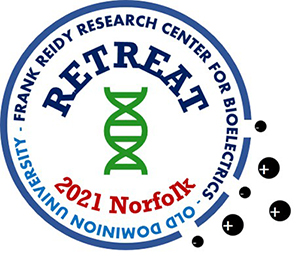Challenges in Bioelectrics for Cancer Immunotherapy
Document Type
Presentation
Publication Date
11-11-2021
Speaker Biographical Sketch

Siqi Guo received his professional degree in clinical medicine from the School of Medicine Zhejiang University in 1991, and the M.S. degree in oncology from the Academy of Military Medical Sciences (AMMS) China in 1997. He joined the FRRCBE in 2013, where he is currently a Research Associate Professor. His research focuses are gene electrotransfer and nanosecond electric pulse for cancer immunotherapy.
Category
PIs
Session
Medical Application
Format
In-Person
DOI
10.25776/mc2y-cm52
Conference Name
2021 Frank Reidy Research Center for Bioelectrics Retreat
Abstract
Major advances have been made in cancer immunotherapy. One example is checkpoint blockade immunotherapy which has been approved by FDA to treat numerous cancer types resulting in a substantial increase in the number of lives saved. However, two major hurdles; low response rates, especially to poorly immunogenic cancers and immune-related adverse events (irAEs), limit its broader applications. Differently, a number of tumor ablation modalities have been studied to improve antitumor immunity, nevertheless, low potency is a common issue even in combination with systemic immunotherapy.
Emerging bioelectric technologies including electrochemotherapy, irreversible electroporation, gene electro-transfer (GET), nanosecond electrical pulse (nsEP), non-thermal plasma, etc. have been studied to treat cancer in animal models and clinical trials. GET immunotherapy has been demonstrated a safe and effective therapy for metastatic melanoma in clinical trials. Immunological effects have been observed in other bioelectric modalities as well. Hence, bioelectric technologies as cancer immunotherapies have been proposed and studied. However, there are a number of challenges that need to be addressed before bioelectric cancer immunotherapies could benefit patients. These challenges include technological limitation, tumor heterogeneity, animal model, research capacity, etc. Our group has been focusing on nsEPs induced immunological effects. The challenges in nsEPs as cancer immunotherapy are discussed. Various solutions are proposed to overcome these challenges.
Repository Citation
Guo, Sigi, "Challenges in Bioelectrics for Cancer Immunotherapy" (2021). 2021 Frank Reidy Research Center for Bioelectrics Retreat. 6.
https://digitalcommons.odu.edu/bioelectrics-2021retreat/6
ORCID
0000-0002-7280-7888 (Guo)


